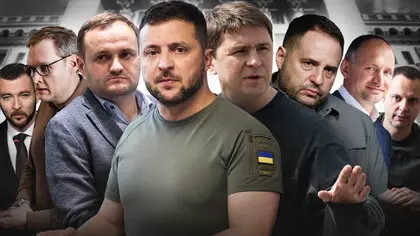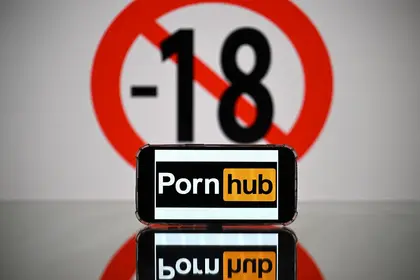Having held senior US government positions in three administrations (Reagan, Bush, and Clinton), I have had the good fortune of observing the dynamics of top governmental officials in democracies and comparing them with what I observed (remotely) in Ukraine. My first “introduction” to the Ukrainian government was in 1994 when I led a US delegation to a Symposium in Kyiv on “Ethics and Accountability in Government,” only to discover that our counterparts were sleepy KGB officials with no interest in what we had to say until the US “Whistleblower Protection Act” was mentioned.
The one similarity that all democratic governments share with Ukraine is that newly elected presidents and prime ministers rely heavily on family, long-time friends, and political or business allies when they first take office. This is understandable because the loneliest persons in government are the ones who assume responsibility for a state’s governance but have not had the opportunity to gauge the loyalty, integrity, and competency of those who will be closest to them – those who staff their office.
JOIN US ON TELEGRAM
Follow our coverage of the war on the @Kyivpost_official.
It is, after all, the Office of the president (or prime minister) through which he communicates, controls his public servants and governs the nation. Any scandal, corruption, or other malfeasance and misfeasance in government is attributed to him and his administration.

‘Just Peace’ and ‘Lasting Peace’ – Nations React to Trump’s Inauguration
However, there are several fundamental differences between a presidential administration in any of these democracies and those of Ukraine – a still-evolving democracy. Western democracies have largely moved away from “vertical” administrative and control structures while the Soviet legacy of having all decisions come from the top is still very strong in Ukraine.
In addition, despite the constitutional “separation” of power among the three branches of government – favoritism, nepotism, patronage, and corruption greatly dilute the “checks and balances” that should ordinarily constrain governmental abuses and mistakes. Third, while all democracies benefit from an unrestricted press and provide legal access (such as the “Freedom of Information Act”) to closely held, unclassified government information, Ukrainian investigative media remains at risk if it chooses to dig deeply into a powerful official’s holdings or decisions.
Lastly, high officials in democracies are accustomed to personal meetings with a broad range of people from all parts of the political and social spectrum, and even make time for “tete-a-tetes” with writers, critics, and opponents (as Obama was wont to do), Ukrainian presidents expect their staff to isolate them from other than the most important visitors.
All these not-yet-fully-addressed shortcomings of Ukraine’s young democracy create a “swamp” in which even the most honest and well-meaning presidents are at risk of losing their popularity, their positions, and the historical legacy that they hope to bestow on generations to follow.
The people to whom they entrust many of their responsibilities and consult on very serious state matters begin to enjoy the power and recognition they hold from the merely reflected but real power of the president. They minimize their positions of anonymity when things go haywire but seek to magnify their importance as “rainmakers” when things go well. Eventually, though unelected, they see themselves as partners with the president and seek to impose their decisions even against the advice of experts while controlling the information that the president receives.
In short, they quietly fall to the temptation of using their positions to benefit themselves and their loyalists without the president’s knowledge until some major scandal develops forcing them to implicate their boss.
At this point, I would like to make it clear that I am one of the President’s strongest admirers ever since he refused the offer of safe passage out of Kyiv when the Russians invaded. Over the last two years, he has served as a source of inspiration, strength, and unity to a nation fighting against incredible odds. Although Ukrainian is not his primary language, he now speaks it flawlessly and his frequent “chats” to the nation seem authentic and believable. The reception he has received in the world makes every Ukrainian proud. He reminds me of my other favorite president, Ronald Reagan, who also started as an actor and became one of the greatest statesmen of the 20th century.
But it is precisely at this stage that Zelensky must thread most carefully lest “hubris,” poor counsel, and scandal rob his presidency of the laurels it deserves. His ratings have gone down and the nation is in a disheartened mood. His justification for and handling of the replacement of his popular top military commander is seen by many as not in Ukraine’s best interest.
His chief of staff seems to have replaced his very capable foreign minister as the primary contact person with foreign states. His failure to impress on parliament strict timelines for approval of a new mobilization law and the start of recruiting and training more military personnel appears to contradict his pleas for more Western support. His staff’s failure to recognize the increasingly reckless influence of the Trump wing of the Republican party and to develop a counterstrategy to shore up support for Ukraine … all reflect serious shortcomings in the Office of the President.
Perhaps, just as Zelensky thought it wise to replace General Zaluzhny (though many, including myself, think differently), it may be time for him to look at his own office and recognize that his staff may have failed him and his trust been misplaced. It may be that the lowering of his rating and growing public doubt is directed more toward the people around him than toward himself. There have truly been serious errors of judgment, starting with the failure to accept US warnings of Putin's intentions. Ultimately, history may fault him, not his staff, for the consequences.
President Zelensky needs to (figuratively) “open the windows” and let in some fresh air. His Office has huge responsibilities, even without the additional complexities of wartime, to ensure that the president is always fully informed and, in grave matters of state, must ensure that he has the opportunity to get the best and fullest advice from the most knowledgeable people. Much too often, especially in countries like Ukraine, the staff confuses its supportive role with that of the president's.
The views expressed are the author’s and not necessarily those of Kyiv Post”
You can also highlight the text and press Ctrl + Enter










